
ABOUT THE CONFERENCE
The Atlantic Council is organizing a Clean energy outlook conference in Istanbul on October 10-11, 2022. This timely event, organized by the Atlantic Council IN TURKEY and the Council’s Global Energy Center, and in partnership with the European Bank for Reconstruction and Development, will convene leaders from government, business, and research communities to discuss clean, secure, and sustainable energy developments.
Russia’s war in Ukraine exacerbated the ongoing energy crisis, which has reached unprecedented levels of volatility, threatening energy supplies and affordability across Europe, and leaving consumers saddled with sky-high energy bills and facing potential rationing in the winter. This emergency demands both a focus on immediate energy security needs and emphasis on the transition to a decarbonized and sustainable energy system in the medium to long-term. In the lead up to COP27, the time is right to accelerate the progress on decarbonization in the region, while exploring how clean energy solutions can contribute to addressing high prices and the supply crunch in the near-term.
Regional energy markets are faced with diverse, unique challenges in bolstering energy security while decarbonizing their economies. This conference will serve as a platform for discussions of regulatory changes, financing mechanisms, and clean energy technologies necessary to drive the energy transition while improving security and resilience of the energy systems. Participants will brainstorm ideas on how to expedite the adoption and deployment of clean energy technologies and sustainability solutions, including efforts towards the circular economy.
The conference also features a private ministerial session covering Central Asia, the Caucasus, and the Balkans on the implications of the Paris Agreement, COP27, and the EU Green Deal, as well as two public discussions on the regional clean energy outlook. These sessions are organized by the Atlantic Council and the European Bank for Reconstruction and Development (EBRD), a leading financier of clean energy projects and climate change mitigation efforts throughout the region.
CONFERENCE AGENDA
More speakers to be announced. All times local.
DAY ONE (Monday, October 10, 2022)
11:30 a.m. Registration and networking coffee begins
1:15 – 1:30 p.m. Welcoming Remarks
Defne Sadıklar Arslan, Turkey Representative and Senior Director, Atlantic Council IN TURKEY, Atlantic Council
Arvid Tuerkner, Managing Director for Turkey, European Bank for Reconstruction and Development
1:30 p.m. Implications of Geopolitical and Energy Market Volatility to the Clean Energy Transition
Geopolitical crises, primarily the Russia-Ukraine War, have roiled energy markets in 2022 causing a spike in oil and gas prices, supply disruptions, and rising inflation. For many countries, the volatility, coupled with political concerns, have underscored the need to decarbonize energy systems and diversify fossil fuel supplies in the interim. In many cases, however, the short-term political imperative of finding reliable and acceptable sources of energy are beginning to conflict with the long-term and urgent goal of decarbonization, the result being a lack of action and progress toward an energy transition.
Matthew Baldwin, Deputy Director-General, Directorate-General for Energy, European Commission
Olga Bielkova, Director on Corporate and International Affairs, Gas TSO of Ukraine
Ana Palacio, Board Director, Atlantic Council & Former Minister of Foreign Affairs of the Kingdom of Spain
Moderator: Defne Sadıklar Arslan, Turkey Representative and Senior Director, Atlantic Council IN TURKEY, Atlantic Council
2:30 p.m. How to apply nuclear reactors in the developing needs of developing countries
With global electricity demand projected to double by 2050, the nuclear industry is seeking a new approach to designing, building, and commercializing nuclear energy technologies. Small modular reactors (SMRs) hold the potential to help decarbonize the power sector and can also aid in decarbonizing several hard-to-abate sectors including desalination, process heat, and synthetic fuels production. With lower capital costs and smaller geographic footprints than traditional light water reactors, SMRs can play a crucial role in meeting electricity demand from developing countries, which are projected to account for 90 percent of global electricity demand growth to 2040.
Ana Birchall, Special Envoy for Strategic and International Affairs, Nuclearelectrica
André Pienaar, Founder and Chief Executive, C5 Capital
Moderator: Olga Khakova, Deputy Director for European Energy Security, Global Energy Center, Atlantic Council
3:45 p.m. Keynote Remarks by Richard L. Morningstar, Founding Chairman, Global Energy Center, Atlantic Council & Former US Ambassador to the European Union and Azerbaijan
4:00 p.m. Financing the Phase-out of Coal
At the core of climate goals and the energy transition is the need to quickly move away from the most polluting sources of energy, such as coal, to clean and more efficient resources. In many countries, however, coal remains an important component in the energy mix for political, economic, and societal reasons. The panel will discuss the opportunities and challenges ahead for phasing coal out of the energy mix and how to balance the calculus behind decision making while including factors from energy security to financing. The discussion will also highlight progress made through initiatives such as the Just Energy Transition Partnership (JETP) with South Africa
Birol Ergüven, CEO, Limak Energy
Aida Sitdikova, Director Energy Eurasia, Middle East and Africa, Sustainable Infrastructure Group, European Bank for Reconstruction and Development
Ainur Sospanova, Member of the Board, Qazaq Green Association
Moderator: Matthew J. Bryza, Regional Director, Ballard Partners
4:45 p.m. The Role of the Energy Transition in East Med Energy Security
Adoption of renewables in the Eastern Mediterranean has been increasing over the last few years, and can be backed up by natural gas—substantial resources of which have been discovered throughout the region. With energy security at center stage, however, countries throughout the East Med should prioritize additional development of its natural gas and renewable resources, with solar energy in particular at the forefront. Not only will these efforts result in greater energy security, they will also contribute to regional stability
Berris Ekinci, Director General for Energy and Environment, Ministry of Foreign Affairs, Republic of Turkey
Charles Ellinas, Nonresident Senior Fellow, Global Energy Center, Atlantic Council
Ariel Ezrahi, Nonresident Senior Fellow, Middle East Programs, Atlantic Council; Former Director of Energy at the Office of the Quartet
Erika Olson, Deputy Assistant Secretary, Bureau of European and Eurasian Affairs, US Department of State
Moderator: Harry Tzimitras, Nonresident Senior Fellow, Global Energy Center, Atlantic Council
5:45 p.m. Keynote Remarks by Mary Burce Warlick, Deputy Executive Director, International Energy Agency
DAY TWO (Tuesday, October 11, 2022)
8:30 a.m. Registration and networking coffee
9:30 a.m. Keynote Remarks
Landon Derentz, Senior Director, Global Energy Center, Atlantic Council
Geoffrey R. Pyatt, Assistant Secretary of State for Energy Resources, US Department of State
Alparslan Bayraktar, Deputy Minister of Energy and Natural Resources, Republic of Turkey
10:10 a.m. Circular Economy and Financing Models
The United Nations Development Program’s Human Development Report 2020 highlighted the need to innovate and implement the transition to a circular economy to achieve the UN’s Sustainable Development Goals. Circular economy strategies aim to reduce overconsumption, design out waste, restore and regenerate ecosystems and natural capital, and require fundamental changes in production and consumption systems and advances in technology. Many of these strategies are already on the horizon, creating a significant opportunity for a circular carbon economy to reach carbon neutrality.
Naci Can, Project Finance & Treasury Director, Çalık Enerji
Emrah Durusut, Senior Partner, Xynteo
Irina Ghaplanyan, Senior Advisor on Climate Change, World Bank Group & Atlantic Council Millennium Leadership Fellow
Moderator: Şule Kılıç, Deputy Head Turkey, (Sustainable Infrastructure Group) Infrastructure & Energy, European Bank for Reconstruction and Development
1:00 p.m. EBRD Panel 1: Clean Energy Outlook for Central Asia and the Caucasus
The Clean Energy Outlook looks bright for Turkey and nearby countries in Central Asia and the Caucasus, as they become more aware of the necessity and benefits of the transition to clean energy. By increasing the usage of renewable energy, governments can meet climate goals, enhance energy security, and reduce the cost of electricity to consumers. This can be done by developing a long-term strategy for scaling up renewable energy, establishing clear targets and signals for investors, creating an enabling regulatory environment, and accelerating the adoption of emerging technology. However, there are challenges that should be addressed to ease the transition to a clean energy system—these include the need to raise public awareness, overcome the dominance of hydrocarbons, strengthen grid capacity to absorb intermittent renewables, tackle growing supply costs and disruptions in supply chains, and mobilize sources of capital.
Sherzod Khodjaev, Deputy Minister of Energy, Republic of Uzbekistan
Sorbon Kholmuhamadzoda, Deputy Minister of Energy and Water Resources, Republic of Tajikistan
Romeo Mikautadze, Deputy Minister of Economy and Sustainable Development, Georgia
Elnur Soltanov, Deputy Minister of Energy, Republic of Azerbaijan
Ainur Sospanova, Member of the Board, Qazaq Green Association
Taalaibek Tolubaev, Deputy Minister of Energy, Kyrgyz Republic
Moderator: Aida Sitdikova, Director Energy Eurasia, Middle East and Africa, Sustainable Infrastructure Group, European Bank for Reconstruction and Development
2:15 p.m. EBRD Panel 2: Clean Energy Outlook for Balkans and Eastern Europe
Clean Energy Outlook looks hopeful for the future of Turkey, the Western Balkans, and Eastern Europe, as they become more aware of the necessity and benefits of the transition to clean energy. By increasing the usage of renewable energy, governments can meet climate goals, enhance energy security, and reduce the cost of electricity to consumers. This can be done by developing a long-term strategy for scaling up renewable energy, establishing clear targets and signals for investors, creating an enabling regulatory environment, and accelerating the adoption of emerging technology. However, there are challenges that should be addressed to ease the transition to a clean energy system—these include the need to raise public awareness, overcome the dominance of hydrocarbons, strengthen grid capacity to absorb intermittent renewables, tackle growing supply costs and disruptions in supply chains, and mobilize sources of capital.
George Sergiu Niculescu, Secretary of State, Ministry of Energy, Romania
H.E. Naser Nuredini, Minister of Environment and Physical Planning, Republic of North Macedonia
Moderator: Grzegorz Zielinski, Director, Head of Energy Europe, European Bank for Reconstruction and Development
3:30 p.m. Clean Energy Technologies and Financing Mechanisms
Technological advancement will continue to be one of the key driving forces behind the proliferation of clean energy across the globe, but ensuring sufficient investment to scale and deploy these technologies will be critical to realizing their potential impact in supporting a net-zero world. Panelists will discuss the impact of the latest developments in energy storage systems, batteries, electric vehicles, carbon capture, and small modular reactors (SMRs) on the energy transition.
Lee Beck, Senior Director, Europe, Clean Air Task Force & Nonresident Senior Fellow, Global Energy Center, Atlantic Council
Evren Evcit, Director of Zorlu Solar and Foreign Investments, Zorlu Enerji
Özgür Kartal, Business Development Director, IC Energy
Gianpiero Nacci, Acting Director for Green Economy and Climate Action, European Bank for Reconstruction and Development
Moderator: Eser Özdil, Nonresident Fellow, Atlantic Council IN TURKEY
4:30 p.m. Hydrogen: what role in the clean energy transition?
Hydrogen energy is a key component in the fight against climate change and in efforts to decarbonize energy systems. Implementing innovative hydrogen technologies will aid in the transition to a clean, sustainable, low-carbon energy system, but policy and financial tools are needed to realize hydrogen’s potential. To increase the use of hydrogen, governments should develop strategies and ways to cooperate across borders that will address significant challenges facing the fuel’s use in the energy transition.
Shuayb Ismail, Principal, Xynteo
Inbal Kan-Tor, Head of CCUS Business, Airovation Technologies
David Livingston, Senior Advisor, Office of the Special Presidential Envoy for Climate, USA
Mehmet Erdem Yaşar, Associate Director, Energy Eurasia, Middle East and Africa, Sustainable Infrastructure Group, European Bank for Reconstruction and Development
Moderator: Bina Hussein, Nonresident Fellow, Global Energy Center, Atlantic Council
5:30 p.m. Closing Remarks
Frederick Kempe, President and CEO, Atlantic Council
CONFIRMED SPEAKERS

Defne Arslan
Senior Director, Atlantic Council IN Turkey
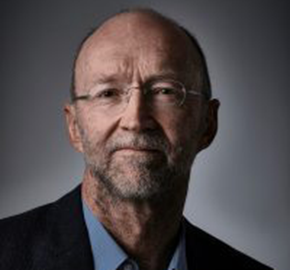
Matthew Baldwin
Deputy-Director General, Directorate-General for Energy, European Commission
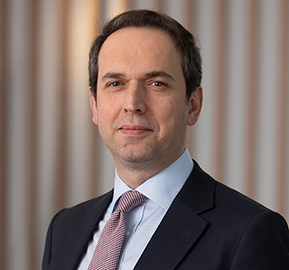
Alparslan Bayraktar
Deputy Minister of Energy and Natural Resources, Republic of Turkey
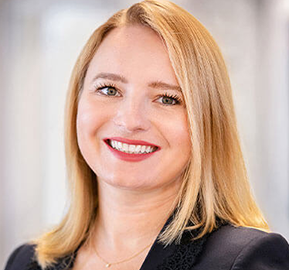
Lee Beck
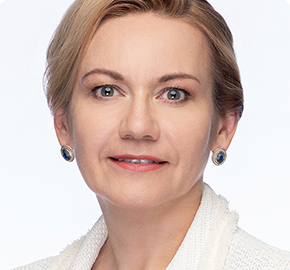
Olga Bielkova
Director on Corporate and International Affairs, Gas TSO of Ukraine
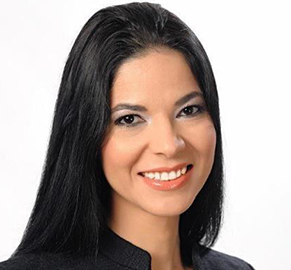
Ana Birchall
Special Envoy for Strategic and International Affairs, Nuclearelectrica
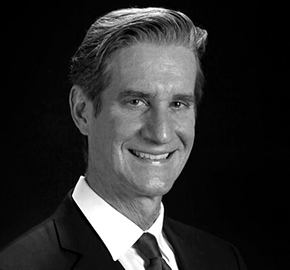
Ambassador Matthew J. Bryza
Regional Director, Ballard Partners
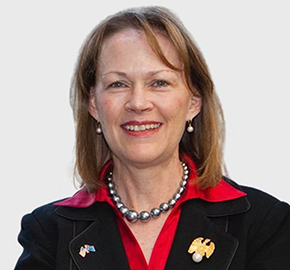
Mary Burce Warlick
Deputy Executive Director, International Energy Agency
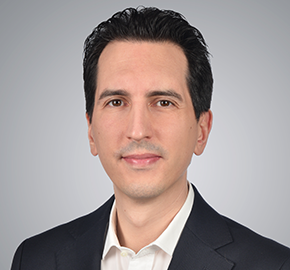
Naci Can
Project Finance & Treasury Director, Çalık Enerji

Landon Derentz
Senior Director, Atlantic Council Global Energy Center
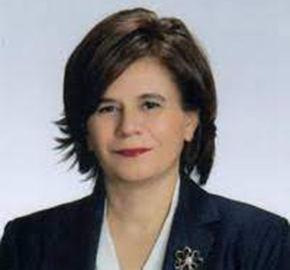
Berris Ekinci
Director General for Energy and Environment, Ministry of Foreign Affairs, Republic of Turkey
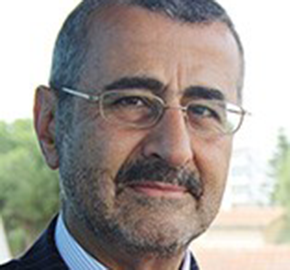
Charles Ellinas
Nonresident Senior Fellow, Atlantic Council Global Energy Center
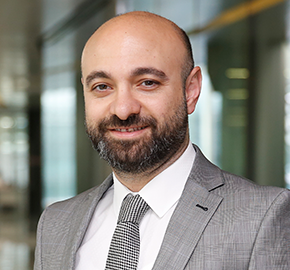
Evren Evcit
Director of Zorlu Solar and Foreign Investments, Zorlu Enerji
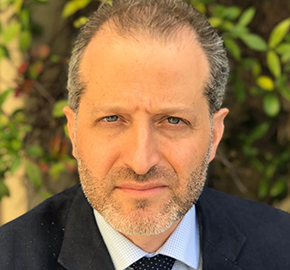
Ariel Ezrahi
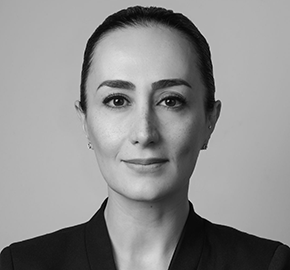
Irina Ghaplanyan
Atlantic Council Millennium Leadership Program; Senior Advisor on Climate Change, World Bank Group
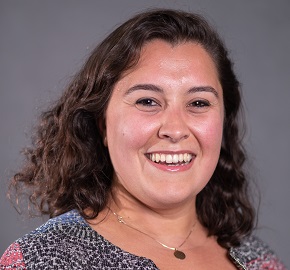
Bina Hussein
Nonresident Fellow, Atlantic Council Global Energy Center
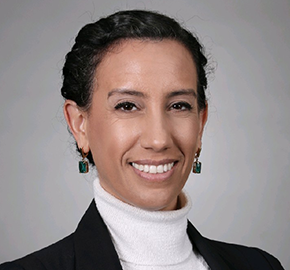
Inbal Kan-Tor
Head of CCUS Business, Airovation Technologies
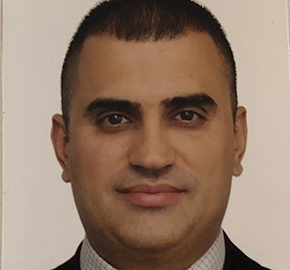
Özgür Kartal
Business Development Director, IC Energy
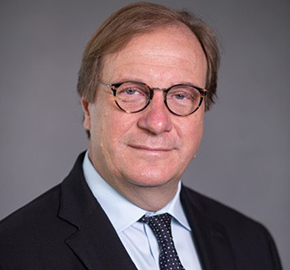
Frederick Kempe
President and CEO, Atlantic Council
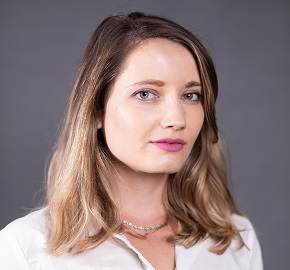
Olga Khakova
Deputy Director, European Energy Security, Atlantic Council Global Energy Center
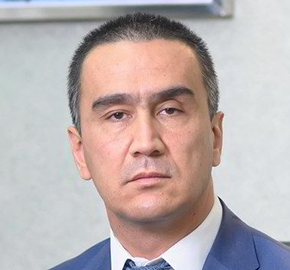
Sherzod Khodjaev
Deputy Minister of Energy, Republic of Uzbekistan
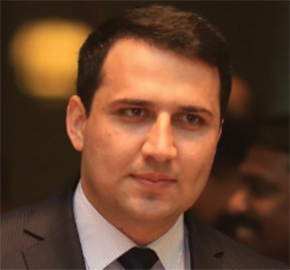
Sorbon Kholmuhamadzoda
Deputy Minister Energy and Water Resources, Republic of Tajikistan
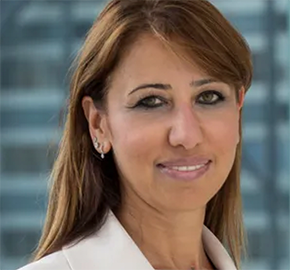
Sule Kılıç
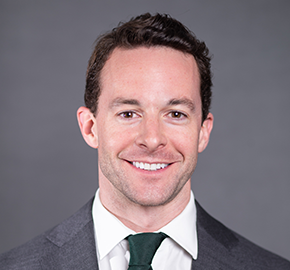
David Livingston
Senior Advisor to U.S. Special Presidential Envoy for Climate John Kerry
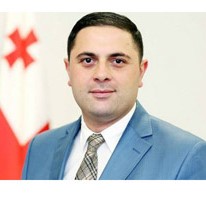
Romeo Mikautadze
Deputy Minister of Economy and Sustainable Development, Georgia
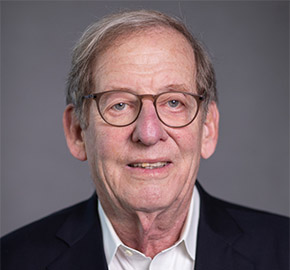
Ambassador Richard L. Morningstar
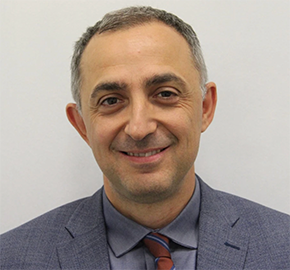
Gianpiero Nacci
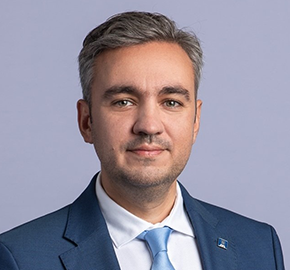
George-Sergiu Niculescu
Secretary of State, Ministry of Energy, Romania
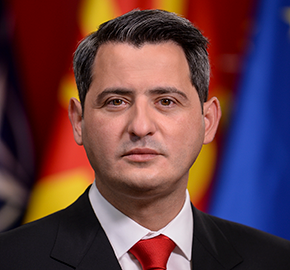
H.E. Naser Nuredini
Minister of Environment and Physical Planning, Republic of North Macedonia
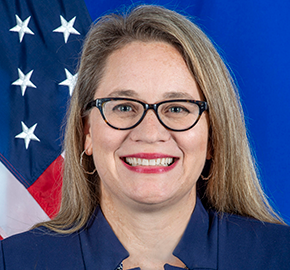
Erika Olson
Deputy Assistant Secretary, Bureau of European and Eurasian Affairs, US Department of State
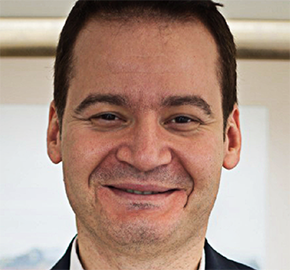
Eser Özdil
Nonresident Senior Fellow, Atlantic Council IN TURKEY, Atlantic Council
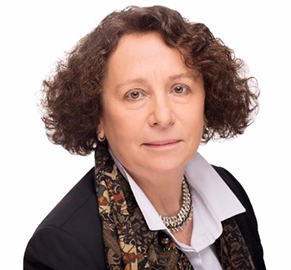
Ana Palacio
Board Director, Atlantic Council
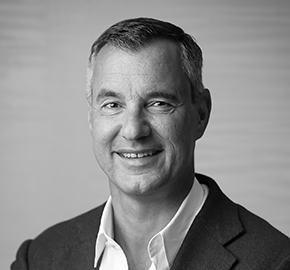
André Pienaar
Chief Executive and Founder, C5 Capital
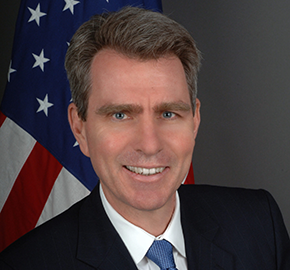
Geoffrey R. Pyatt
Assistant Secretary of State for Energy Resources, US Department of State

Aida Sitdikova
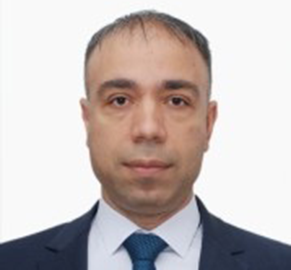
Elnur Soltanov
Deputy Minister of Energy, Republic of Azerbaijan
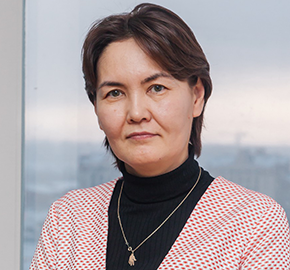
Ainur Sospanova
Member of the Board, Qazaq Green Association
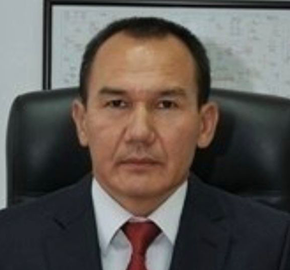
Taalaibek Tolubaev
Deputy Minister of Energy, Kyrgyz Republic

Arvid Tuerkner
Managing Director, Turkey, European Bank for Reconstruction and Development
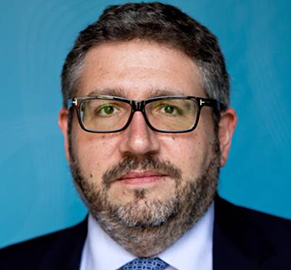
Harry Tzimitras
Nonresident Senior Fellow, Atlantic Council Global Energy Center
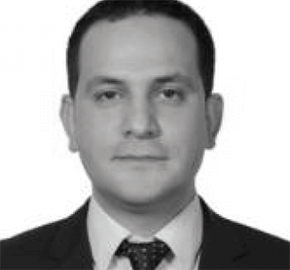
Mehmet Erdem Yaşar
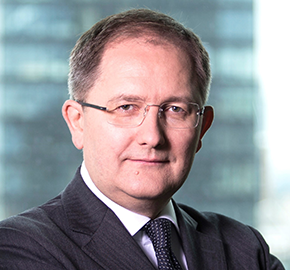
Grzegorz Zielinski
Director, Head of Energy Europe, European Bank for Reconstruction and Development








